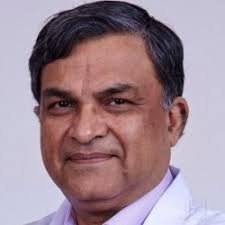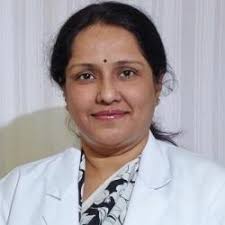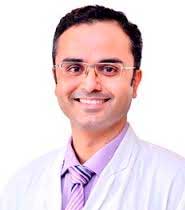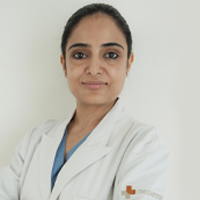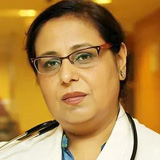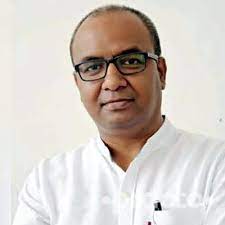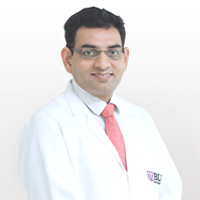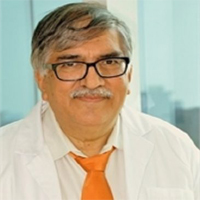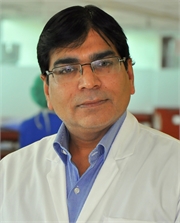Stomach Cancer Treatment IN INDIA
Stomach cancer, a condition that arises from abnormal cell growth in the stomach lining, demands advanced and timely medical intervention. Over the years, India has become a leading destination for high-quality stomach cancer treatment, drawing patients from across the globe. With cutting-edge medical technology, internationally acclaimed specialists, and a commitment to patient care, the country stands at the forefront of cancer treatment.
India’s healthcare system combines expertise with affordability, offering unparalleled value for international patients. From accurate diagnostics to innovative treatments like targeted therapy and immunotherapy, Indian hospitals cater to the full spectrum of stomach cancer care. Moreover, the emphasis on holistic care—including pre- and post-treatment support—makes India a preferred choice for those seeking effective solutions.
For patients navigating the complexities of stomach cancer, choosing the right destination and care partner is crucial. Al Afiya MediTour has emerged as a trusted facilitator, ensuring that patients receive world-class treatment in India while enjoying seamless and personalized support. Whether through access to the best oncologists or complete logistical assistance, Al Afiya MediTour simplifies every step of the treatment journey, providing hope and healing to those in need.
Introduction:
Stomach cancer, also referred to as gastric cancer, is a condition that develops when malignant cells form in the stomach lining. This disease poses a significant health risk worldwide, particularly in regions where dietary and lifestyle factors increase susceptibility. Stomach cancer is often diagnosed at an advanced stage due to its subtle early symptoms, making timely and effective treatment crucial.
India has become a prominent destination for stomach cancer treatment, attracting patients from across the globe. The country’s reputation for providing high-quality care at affordable costs has positioned it as a medical tourism hub. Advanced technology, internationally accredited hospitals, and highly skilled medical professionals contribute to India’s global recognition in the healthcare sector. Whether through surgical interventions, innovative therapies, or supportive care, India offers comprehensive solutions for those battling this disease.
Types of Stomach Cancer:
Understanding the type of stomach cancer is fundamental for choosing the most effective treatment strategy. There are four primary types of stomach cancer, each requiring a unique approach to diagnosis and management:
- Adenocarcinoma: Adenocarcinoma is the most prevalent type of stomach cancer, originating in the glandular cells of the stomach lining. These cells produce mucus, and their uncontrolled growth leads to tumors. This type accounts for approximately 90–95% of stomach cancer cases. Early detection is essential, as adenocarcinoma often progresses rapidly.
- Lymphoma: This rare type of stomach cancer begins in the stomach’s lymphatic tissue, which is part of the immune system. Stomach lymphomas may manifest as primary (localized to the stomach) or secondary (spread from other parts of the body). Treatment for lymphoma differs significantly from other forms of stomach cancer, often involving chemotherapy and radiation instead of surgery.
- Gastrointestinal Stromal Tumors (GISTs): GISTs are rare tumors that arise from interstitial cells in the stomach wall. These tumors are often slow-growing but can become aggressive if left untreated. Targeted therapy, particularly using drugs like imatinib, has revolutionized the treatment of GISTs.
- Carcinoid Tumors: Carcinoid tumors develop in hormone-producing cells of the stomach. Although they are usually less aggressive than other forms, some carcinoid tumors can metastasize. Treatment typically includes surgery and targeted therapy.
What are the Stomach Cancer Treatment Options Available in India?
India offers an extensive range of treatment options for stomach cancer, tailored to the type and stage of the disease. Here are the key modalities:
- Surgery
Surgery is often the primary treatment for stomach cancer, especially in localized cases. The goal is to remove the tumor and affected surrounding tissues to prevent recurrence.
- Gastrectomy: This procedure involves removing part (partial gastrectomy) or all (total gastrectomy) of the stomach. Surgeons aim to preserve as much healthy tissue as possible.
- Lymphadenectomy: Removal of nearby lymph nodes is crucial to eliminate cancer cells that may have spread.
- Chemotherapy
Chemotherapy employs anti-cancer drugs to destroy cancer cells or shrink tumors before surgery (neoadjuvant therapy) and eliminate residual cancer cells after surgery (adjuvant therapy). Advanced regimens in India ensure efficacy while minimizing side effects.
- Radiation Therapy
Radiation therapy uses high-energy rays to target and kill cancer cells. Techniques like Intensity-Modulated Radiation Therapy (IMRT) allow precise targeting, reducing damage to surrounding healthy tissues.
- Targeted Therapy
Targeted therapy is a modern approach focusing on specific molecules or pathways involved in cancer cell growth. For example:
- HER2-targeted therapy: Trastuzumab is commonly used for HER2-positive stomach cancer, which involves overexpression of the HER2 protein.
- Immunotherapy
Immunotherapy enhances the body’s natural defenses to combat cancer. Drugs like checkpoint inhibitors (e.g., pembrolizumab) block proteins that prevent the immune system from attacking cancer cells.
What are the Costs of Stomach Cancer Treatment in India?
One of the most significant advantages of seeking treatment in India is the cost-effectiveness. Despite offering cutting-edge medical technology and expertise, treatment costs in India are substantially lower compared to Western countries.
Detailed Cost Comparison
| Treatment Type | Average Cost (INR) | Average Cost (USD) |
|---|---|---|
| Gastrectomy Surgery | ₹3,50,000 – ₹6,00,000 | $4,300 – $7,300 |
| Chemotherapy (per cycle) | ₹50,000 – ₹1,50,000 | $600 – $1,800 |
| Radiation Therapy | ₹2,00,000 – ₹4,00,000 | $2,400 – $4,900 |
| Targeted Therapy (annual) | ₹10,00,000 – ₹15,00,000 | $12,200 – $18,300 |
| Immunotherapy (annual) | ₹15,00,000 – ₹20,00,000 | $18,300 – $24,500 |
What are the Factors Affecting the Cost of Treatment?
Several factors influence the cost of stomach cancer treatment in India:
- Hospital Infrastructure and Location: Premium hospitals in metro cities may charge more due to advanced infrastructure and higher living costs.
- Type of Treatment: Advanced therapies such as targeted therapy and immunotherapy are more expensive compared to conventional treatments.
- Patient’s Health Condition: Patients with comorbidities or advanced-stage cancer may require additional interventions, increasing overall costs.
Why Choose Al Afiya Meditour for Stomach Cancer Treatment
Al Afiya Meditour stands out as a leading medical tourism facilitator, helping international patients access high-quality cancer treatment in India. Here’s why they are a preferred choice:
- Network of Leading Hospitals: Collaborations with top-tier hospitals ensure access to cutting-edge treatments and experienced specialists.
- End-to-End Support: From visa assistance to post-treatment follow-ups, Al Afiya Meditour handles every aspect of the patient journey.
- Affordable Packages: Transparent pricing and customized packages cater to diverse budgets without compromising on care quality.
Patient-Centric Approach: Services include language interpreters, travel arrangements, and personalized care plans to ensure a hassle-free experience.
What are the initial symptoms of stomach cancer?
Common symptoms include persistent indigestion, bloating, nausea, unintentional weight loss, and difficulty swallowing. Early-stage symptoms can be mild, making regular checkups essential.
Pre-Treatment Care
- Diagnostic Tests: Comprehensive diagnostic workups include endoscopy, biopsy, CT scans, and PET scans. These tests help stage the cancer accurately, guiding the choice of treatment.
- Nutritional Planning: Proper nutrition is essential for strengthening the body before surgery or therapy. A dietitian may recommend high-protein meals and supplements to maintain energy levels.
Post-Treatment Care
- Follow-Up Tests: Regular monitoring is critical to detect any recurrence early. Patients often undergo periodic blood tests, imaging, and endoscopic evaluations.
- Lifestyle Adjustments: Post-treatment recovery demands significant changes in diet, exercise, and habits. Avoiding tobacco, alcohol, and unhealthy foods can help improve outcomes and overall health.
- Psychological Support: Emotional well-being is crucial, and counseling or support groups can help patients navigate the challenges of recovery.
Top Stomach Cancer Treatment Doctors in India
The right doctor to consult for a Stomach Cancer Treatment case.
Dr. Ajay Kumar Kriplani
Year of experience: 33 Years of Experience
Dr. Rashmi Pyasi
Year of experience: 20 years of experience
Dr. Akshay Tiwari
Year of experience: 18 Years of Experience
Head of the Department at Max Super Speciality Hospital, Saket, Delhi
Dr. Amit Agarwal
Year of experience: 20 years of experience
Dr. Kanchan Kaur
Year of experience: 17 years of experience
Dr. Meenu Walia
Year of experience: 27 years of experience
Dr. Rayaz Ahmed
Year of experience: 17+ Years of Experience
Dr. Sabyasachi bal
Year of experience: 30
Senior Consultant at Sir Ganga Ram Hospital, Delhi
Dr. Satya Prakash Yadav
Year of experience: 23
Senior Consultant at Medanta The Medicity
Dr. Surender Kumar Dabas
Year of experience: 12 years of experience
Dr. Vinod Raina
Year of experience: 50
Senior Consultant at Fortis Memorial Research Institute, Gurgaon
Dr. Rakesh Chopra
Year of experience: 15 years of experience
Dr. Biswajyoti Hazarika
Year of experience: 20
Senior Consultant at Artemis Hospital
Dr. Dharma Choudhary
Year of experience: 28
Senior Consultant at BLK Super Speciality Hospital
Dr. Priya Tiwari
Year of experience: 17
HOD and Senior Consultant at Artemis Hospital
Dr. Piyush Kumar Agarwal
Year of experience: 20
Director, HOD and Senior Consultant at Marengo Asia Hospitals Formerly W Pratiksha Hospital, Gurgaon
Dr. Mukesh Pathakr
Year of experience: 16
HOD and Senior Consultant at Artemis Hospital
Dr. Hari Goyal
Year of experience: 26 Years Of Experience
Dr. Sunny Garg
Year of experience: 15
Clinical Director and Consultant at Marengo Asia Hospitals Formerly W Pratiksha Hospital, Gurgaon
Dr. Tapan Singh Chauhan
Year of experience: 16
Senior Consultant at Artemis Hospital
Dr. Vedant Kabra
Year of experience: 29
Director and Senior Consultant at Fortis Memorial Research Institute, Gurgaon
Leading Hospitals for Stomach Cancer Treatment in India
Looking For The Best Doctor & Hospital?
Fill up the form and get assured assitance within 24 hrs!
FAQs
How effective is stomach cancer treatment in India?
India boasts excellent success rates due to its advanced technology, skilled specialists, and comprehensive care protocols.
What is the average recovery time after treatment?
Recovery times vary depending on the treatment type. For surgeries, recovery typically spans 4–6 weeks, while therapies like chemotherapy or radiation may require ongoing follow-up.
Are international patients provided language assistance in Indian hospitals?
Yes, most hospitals offer multilingual interpreters and dedicated coordinators to assist international patients.
Which are the best hospitals for stomach cancer treatment in India?
India is home to numerous world-class hospitals renowned for stomach cancer treatment, including:
- Tata Memorial Hospital, Mumbai
- Apollo Hospitals, Chennai
- Fortis Memorial Research Institute, Gurugram
- AIIMS (All India Institute of Medical Sciences), New Delhi
- Manipal Hospitals, Bengaluru
These institutions offer advanced diagnostic facilities, highly skilled oncologists, and a range of innovative treatment options.
Who are the leading doctors for stomach cancer treatment in India?
Some of India’s top oncologists specializing in stomach cancer treatment include:
Dr. Suresh Advani (Mumbai) – Renowned Medical Oncologist.
- Dr. Ashok Vaid (Gurugram) – Expert in Medical and Surgical Oncology.
- Dr. Sultan Pradhan (Mumbai) – Highly experienced Surgical Oncologist.
- Dr. Anil Heroor (Mumbai) – Specialized in gastrointestinal oncology surgeries.
- Dr. K. S. Gopinath (Bengaluru) – Esteemed oncologist with a focus on GI cancers.
How long does chemotherapy treatment take for stomach cancer?
Chemotherapy for stomach cancer is usually administered in cycles. Each cycle may last 2–3 weeks, with a rest period in between to allow the body to recover. The total duration depends on the cancer stage and the prescribed regimen, often spanning 3–6 months.
Can stomach cancer be completely cured with treatment?
Cure rates depend on the stage of stomach cancer at diagnosis. Early-stage cancers often have a higher chance of complete remission, especially when treated with a combination of surgery and adjuvant therapies. Advanced stages may not be entirely curable but can be managed effectively to prolong life and improve quality of life.
Is targeted therapy effective for stomach cancer?
Targeted therapy has shown significant success in treating HER2-positive stomach cancers. Medications like trastuzumab target specific proteins or mutations in cancer cells, minimizing harm to normal cells and enhancing treatment efficacy.
How affordable is stomach cancer treatment in India compared to Western countries?
Stomach cancer treatment in India is considerably more affordable, often costing 60–80% less than in Western nations. For example, a gastrectomy surgery in India ranges from ₹3,50,000 to ₹6,00,000 ($4,300–$7,300), whereas the same procedure in the U.S. may cost upwards of $50,000.
What lifestyle changes are recommended after stomach cancer treatment?
Patients are advised to follow a nutritious diet tailored to their reduced stomach capacity, avoid smoking and alcohol, and maintain regular physical activity. Psychological support and stress management also play crucial roles in recovery.
How do hospitals in India ensure the safety and comfort of international patients?
Indian hospitals offer services tailored for international patients, including:
Dedicated International Patient Departments.
Multilingual interpreters.
Assistance with travel, visa, and accommodations.
Customizable treatment plans aligned with the patient’s cultural and dietary preferences.
What diagnostic tests are required for stomach cancer before treatment?
The standard diagnostic workup for stomach cancer includes:
Endoscopy with biopsy for tissue analysis.
Imaging studies like CT, MRI, or PET scans to assess tumor spread.
Blood tests, including tumor markers like CEA and CA 19-9.
These tests help oncologists design a precise and effective treatment plan.
Why is India a preferred destination for stomach cancer treatment?
India combines affordability with medical excellence, offering:
- Access to top-tier hospitals equipped with the latest technology.
- Highly experienced oncologists specializing in stomach cancer.
- Transparent and cost-effective treatment packages.
- Comprehensive care, including pre- and post-treatment support, ensuring a holistic approach to cancer management.
Get FREE Evaluation
Treatment plan and quote within within 24 hrs!
Let us help you
Get your personalized Estimate Now
Top Doctors & Surgeons in India
Best Hospitals in India
Best Treatments in India
Indian Medical Visa From
Copyright © 2025 Al Afiya Medi Tour | All Rights Reserved.

